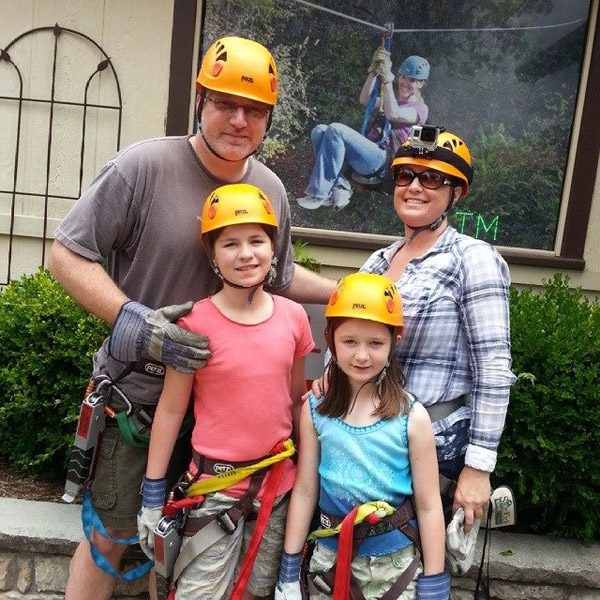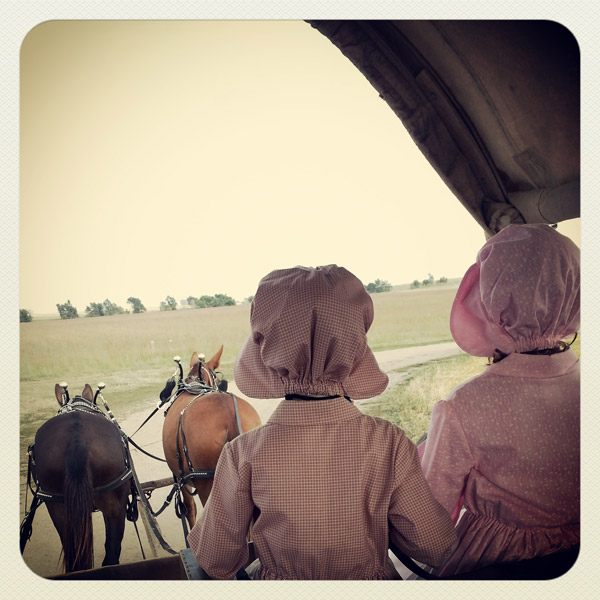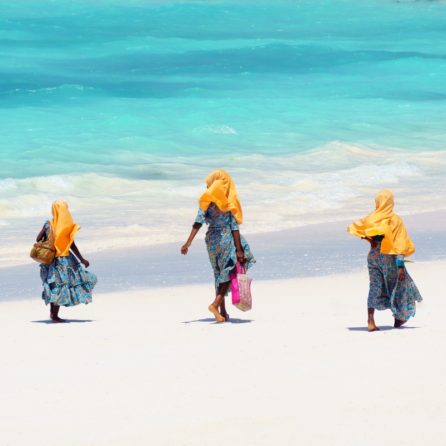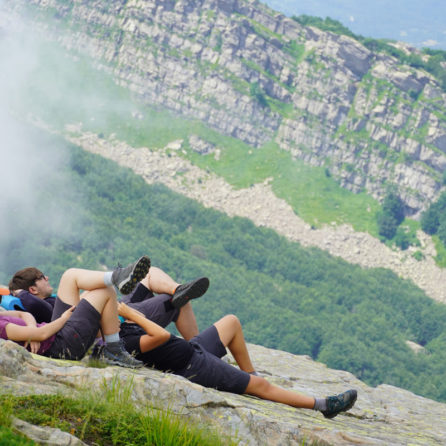Some months ago we talked about a tipically italian problem: travelling during school lessons, that is usually seen like a lack of seriousness from parents toward school duties. As we think that travelling is a foundamental part in the education of our children, I’m trying to understand how this question is approached abroad.
Yes, I know, I could interview teachers or “traditional” parents…But I preferred to start from special parents, who decided to make the world their home, choosing a special project to educate their children.
Today I’ll have a chat with Jodie Halsted, mother of the Family Rambling (very well known in our world of family travel bloggers, as their blog is full of interesting and usuful travel tips!).
Hi Jody, tell me something about you: do you unschool your daughters?
Hi Milly. We don’t necessarily ‘unschool’, as so many traveling families choose to. Instead we utilize the Robinson Curriculum of self-education utilizing classic materials. What this does is to put education in our daughters’ control, with limited input from us. The focus is on the ‘3 Rs’ – reading, writing & arithmetic.
You might like this post I write when Brenna was in public school – her last year of public school, as it turns out > Why Traveling Helps Your Child’s Education
When did you decide to homeschool your children? Why? Was there a particular reason?
We began homeschooling when my youngest was set to enter kindergarten and my eldest was entering second grade. The main reason was that our state (Iowa) only allows 10 ‘unexcused’ absences each year – and we were blowing through that within the first few months. Though our individual teachers and principal understood what we were doing -and even supported our endeavors- the state was not so easy to deal with. After receiving a letter stating that my daughter could be “removed from the home” while my family underwent and “investigation”, we decided that the state wasn’t going to control our life, and moved toward homeschooling.
A secondary reason was that my youngest daughter has her own sense of style- one that includes layers of plastic jewels, often a tiara, and loads of imagination – all of which was forbidden in kindergarten classrooms. We didn’t want public school to crush her independent spirit.
Did your family/the society accept your choice? Did you find some difficulties at the beginning?
Our church is filled with homeschooling families of all types, so we had a huge support system. Family, too, was – for the most part- understanding and supportive.
Our main difficulties were finding a curriculum that would work for our on-the-go lifestyle. It took a couple of years, but I feel we have the right fit now with Robinson Curriculum. As it doesn’t focus on a grade level, but instead moves kids along at their own pace, it is terrific for ‘non-traditional education’. I say ‘non-traditional’ loosely, as the way my girls learn can be very easily compared to the way children learned in rural one room schoolhouses a hundred years ago. The teacher is merely there to guide.
3 positive aspects of your choice and 3 negative
[pros]
- Obviously we don’t have to travel by anyone’s schedule but ours. This means we don’t have to vacation when prices are at their highest and crowds their thickest
- My girls can explore topics that interest them – my youngest is an avid bird watcher and my eldest will lose herself in books (at 9 she is reading and comprehending on a 6th grade level)
- School doesn’t have to take place between 8 and 3. We are free to spend the morning outside enjoying nice weather, and the evening in school work. As long as we get the hours in, who cares when we do it? Hands on education -whether it’s at a nearby park watching birds build a nest, or across the globe learning about history in a castle – is always more fun.
[/pros]
[cons]
- Because we travel quite a bit, close friendships for my girls are fewer than most other children. I wonder if that will affect them later in life, or if it will make them value their friends more?
- We do have the girls in extra curricular activities that tend to coincide with school schedules. Thankfully our instructors are very flexible.
- Costs are not covered by the state… and we still pay taxes that support local public schools. It would be terrific to get some of those tax dollars back to educate our own children.
[/cons]
How do you see your children? which are the main impacts on them?
I did worry about the socialization issue when we first decided to homeschool. But my girls get time with other children in their extra curricular activities. The main impact I see (especially when I compare my girls with their cousins who are nearby and in public school) is that my girls aren’t as concerned with the brand of their clothes, and they don’t feel the need to ‘keep up’ with their friends in terms of ‘stuff’. Also, the ‘education’ they would receive from their peers is so much less.
Describe me a typical day in your life
I’m up about 6am and wake the girls at 7:30. They have an hour to eat breakfast, take care of morning chores, and get cleaned & dressed.
School begins at 8:30 and is usually done by 12:30 or 1.
In the afternoons they have chores that must be done, then they can do their own thing – but nothing mindless (no TV, video games, etc).
Of course this varies by day and according to the weather.
When we are on the road (we have an RV), the girls are able to do school work as we drive.
For you travel is….
…fulfilling > Pushing Boundaries: Our Austin Lehman Montana Family Adventure
Thank you so much dear Jodie!
I hope to meet you and your beautiful family one day….
Milly and Jody
(Photo credits: Family Rambling)
Subscribe to Bimbieviaggi newsletter!
Italian abstract of the interview
The english section of the blog
Tropical islands with children







